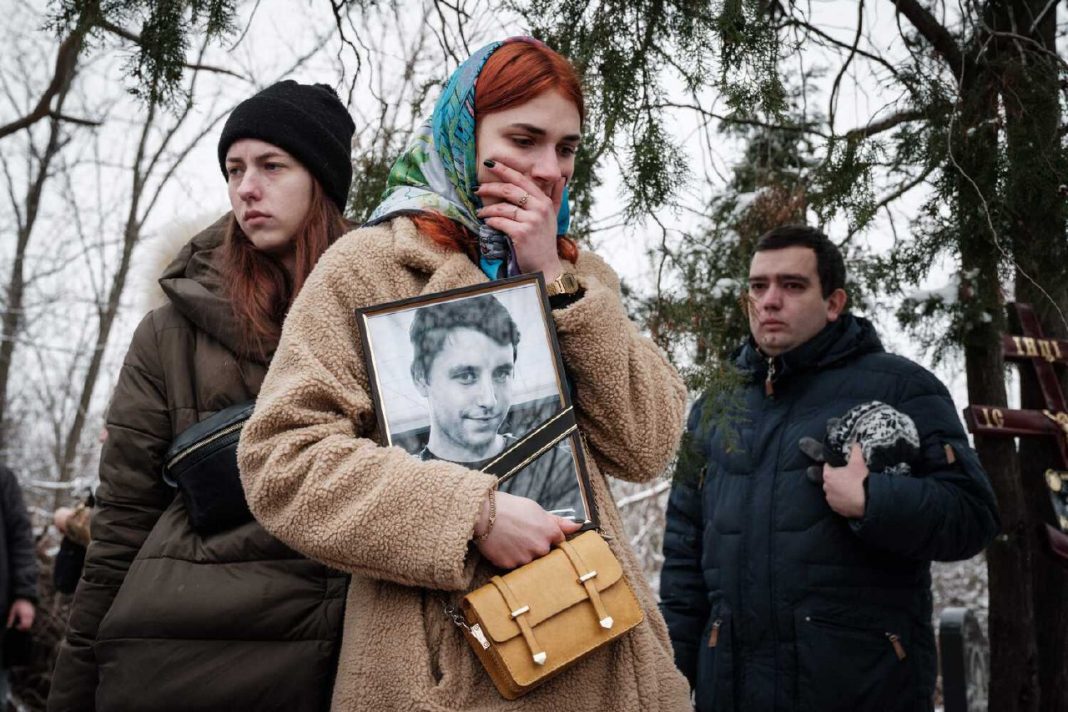Germany says Leopard tanks battalions will reach ‘soon’
Germany expects it will soon have sufficient commitments from other EU countries to send a contingent of Leopard 2 tanks to Ukraine, a government spokesperson said.
“Germany’s commitment stands,” Wolfgang Buechner stated, declining to name any specific countries that had so far committed to sending the German-made tanks.
Germany has promised 14 of its tanks and wants to assemble two battle tank battalions in cooperation with other EU countries.
Norway plans to send Ukraine $7.3bn in aid over five years
Norway’s prime minister has proposed to provide about 75 billion Norwegian crowns ($7.3bn) in aid to Ukraine over five years.
“We aim to secure a unified agreement on this in parliament,” Prime Minister Jonas Gahr Stoere told a news conference after meeting Norwegian opposition leaders.
The Nordic country has seen profits soar to record levels following Russia’s invasion of Ukraine, as the price of gas sold to Europe increased last year.
On Monday, he noted half the aid would fund military requirements while the rest would go to humanitarian needs, although this split could change in coming years.
Stoere’s minority government must seek Parliament’s approval for the funds, increasing the annual spending of Norway’s sovereign wealth fund, the world’s largest investment fund of nearly $1.4 trillion.
Around 300,000 people still without power in Odesa after “technological accident”
Around 300,000 people in the southern Ukrainian city of Odesa remain without power after a “technological accident” an electricity substation on Saturday, according to the region’s military administration.
“The repair works at one of the substations are ongoing, the situation remains complicated,” it said Monday.
Nearly 500,000 people were cut off following a “serious accident” on Saturday, stated Maksym Marchenko, head of Odesa region military administration.
“All services and facilities are involved. The damages are complex and very severe, so it is too early to give any qualitative forecasts on the completion of repairs,” added Marchenko.
Drone explodes outside Russian city of Kaluga: Governor
A drone has exploded outside the Russian city of Kaluga, Governor Vladislav Shapsha revealed, adding that nobody was injured in the blast.
“It has been established that the drone exploded in the air at an altitude of 50 metres [164 feet] in the forest near the city at five o’clock in the morning,” he wrote on Telegram.
The governor did not make clear the source of the drone.
Kaluga is about 150km (93 miles) southwest of Moscow and 260km (162 miles) from the Ukrainian border.
Zelensky: Fierce battles raging in Donetsk as Russia intensifies pressure
Fierce battles are raging in eastern Ukraine’s Donetsk region as Russia intensifies pressure before the first anniversary of its invasion of the country, Ukrainian President Volodymyr Zelensky has stated.
“Things are very difficult in Donetsk region – fierce battles,” Zelensky said in his nightly video address, adding, “But however difficult it is and however much pressure there is, we must endure … We have no alternative to defending ourselves and winning.”
Russia, he noted, was applying increased pressure to “make up for its defeats last year. We see that on various sectors of the front and also pressure in terms of information.”
DM: Ukraine has reserves to repel possible Russian offensive
Ukraine expects a possible major Russian offensive this month, but Kyiv has the reserves to hold back Moscow’s forces even though not all the West’s latest military supplies will have arrived in time, Ukraine’s defence minister has said.
At a news conference, Oleksii Reznikov stated that Russia could launch the new attack in February for symbolic reasons around the first anniversary of its invasion, but that Moscow’s resources were not ready from a military point of view.
Reznikov has noted that the reluctance of Kyiv’s Western allies to send jets to his war-torn country would cost it “more lives.”
“I am sure that we will win this war; I am sure we will liberate all the occupied territories,” Reznikov told reporters in Kyiv, AFP reported. But without the delivery of Western jets, “it will cost us more lives”, he cautioned.
“We have to stop it right now,” Reznikov added.
Battlefield strength swiftest way to Ukraine peace: UK top diplomat
Helping to arm Ukraine so it can defend itself against Russia is the swiftest path to achieving peace, the United Kingdom’s Foreign Secretary James Cleverly has written in an article for a Maltese newspaper ahead of a visit on Tuesday to the island.
“Like all authoritarian rulers, [Russian President Vladimir] Putin responds only to strength in his opponents,” Cleverly wrote in the Times of Malta.
He added that he was delighted that Germany and the United States had joined Britain in agreeing to send tanks to Ukraine.
“Giving the Ukrainians the tools they need to finish the job is the swiftest – indeed the only – path to peace,” he said.
The war in Ukraine is expected to dominate the talks between the UK and Malta, a European Union member.
The island has sought to help Ukraine by enforcing EU sanctions and providing humanitarian assistance including medicines and power generators. A small number of Ukrainian soldiers are also being treated in Maltese hospitals.
Germany: We have ‘hundreds’ of pieces of Ukraine war crime evidence
Germany’s prosecutor general has said that his office has collected “hundreds” of pieces of evidence showing war crimes by Russian forces in Ukraine, calling for an international effort to bring leaders to justice.
“At the moment we are focusing on mass killings in Bucha and attacks on Ukraine’s civil infrastructure,” prosecutor Peter Frank told the Welt am Sonntag newspaper.
He added most of the evidence came from interviews with Ukrainian refugees, and the goal was now to “prepare for a possible later court case – whether in Germany or with our foreign partners or an international court”.
